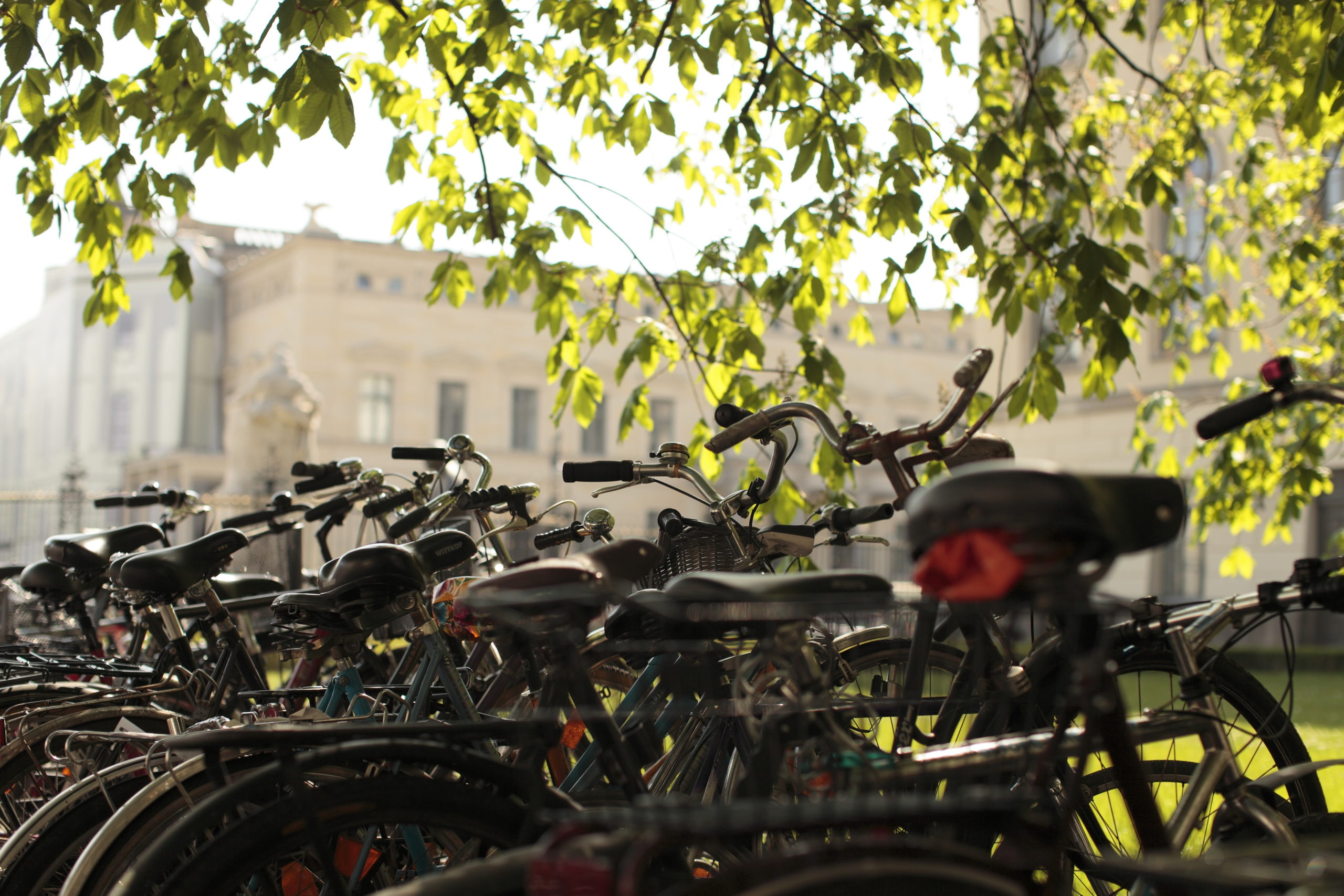Humboldt-Scholarship
Bachelors and Masters
2013-14 Transformation Research and Energy Transition
In 2013/14, 15 Students from Bachelor and Master Programs of the Departments of European Ethnology, Philosophy, Geography and Agricultural Economics were funded by Stiftung Humboldt-Universität for the first time. Their transformational research project set out to explore and improve the relationship and cooperation between transformation initiatives and transformation research.

Driven by the challenges of climate change, the rising costs of resources and the results of continuing globalization, people are increasingly getting together in grassroots movements to create visions and projects for a sustainable transformation of society
The project “Research and Transformation” dealt with the mutual interaction between such transformation initiatives and the scholars researching them. In this context questions about the (self-)image of science and the humanities and its role were raised. Should research benefit the initiatives researched? How can successful cooperation look like? The perspectives of the researched initiatives on this research work were considered as well. One of the project’s goals was to increase the mutual understanding of scholars and the initiatives they analyze, to simplify collaboration.
The Master students Rebecca Lahl (Integrated Natural Resource Management), Daniel Lommes (Philosophy and Linguistics), Kristina Redecker (Human Geography, Political Science and Pedagogics) and Christian Uhle (Philosophy and Economics) got together to join the perspectives of their respective fields as well as their individual expert knowledge for this interdisciplinary research project.
Discussions on topics such as electric mobility, bicycle traffic, public transportation, car sharing, and the development of infrastructure were monitored across electoral programs, political campaigning events, lobby-organization, television interviews and all major German newspapers at that time. By means of a discourse analysis, the project “Sustainable mobility” aimed to achieve a better understanding of the concepts and the influences that shaped the discourse about sustainable mobility at that time.
Their insights suggested that alternative approaches to mobility are mostly discussed as a cumbersome necessity, a threat for the German automobile industry or at best as a technological challenge. Positions advocating for reduction or sharing of mobility instead of solutions that seek for substitution of fossil energy were rarely found. Considerations such as social inclusiveness or how to best address the problem politically also took a rather marginal position in the discourse analyzed.
The project “Land use change” didn’t wanted to conceptualize land use change as a restricted and separated topic, but as influenced by its ties to Berlin as the local center and its dependencies to regional, national, and European structures of governance.
For this research, a local case study was planned to conduct fieldwork and to examine the local basis of the so-called “Energiewende” (energy transition), with its influence on the emergence of energetic autonomy and especially social structures, e.g. with ethnographic methods such as participant observation. Furthermore, soil samples and an analysis of satellite images eventually showing changes in the structures of land use were analyzed.
The group consisted of six students from different disciplines (Geography, Agronomy and European Ethnology) in different stages of their studies.


